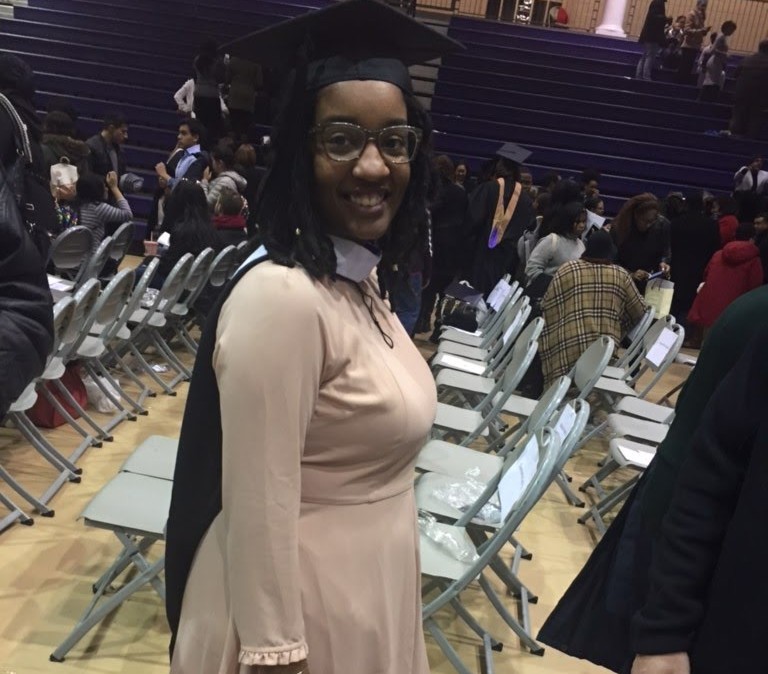[ad_1]
Interviewed by Micha Green
AFRO D.C. Editor
[email protected]
Ashley Bedeau completed her Bachelor’s degree in Psychology at Virginia Commonwealth University in 2012. Bedeau earned a Masters in Clinical Mental Health Counseling at Trinity Washington University in 2017. The counselor has had the pleasure of providing care for families, youth & adolescents, couples and therapeutic groups as a Licensed Graduate Professional Counselor (LGPC). Bedeau is currently a member of American Counseling Association (ACA) and Maryland Counseling Association (MCA). She uses a person-centered approach to guide her therapeutic alliance with clients through blending approaches regulated by the individual client’s needs. Bedeau is currently a community-based therapist at People Encouraging People (PEP)
AFRO: Has your job been affected by the COVID-19 pandemic?
Bedeau: Yes, it definitely has. With a community based position, when the state said stay home the workday got a bit tricky. I started shadowing with my team the week of March 16. The next week we moved online and have been working from home since. My team has been responsive and supportive. The clients are thankful and the day-to-day interactions are priceless.

AFRO: What are some of the concerning mental health challenges that can arise or intensify during the pandemic?
Bedeau: Anxiety, depression, substance abuse, abuse….the list goes on. Every day is a mental health challenge. Mental health gets a bad wrap. It’s a label for a human experience. A lot of these challenges are human instincts (fight, flight, freeze) instilled in use by nature and nurture. Often times we lack the tools/strategies to engage with these instincts (emotions). I’ve noticed an increased anxiety around physical interactions. Even the term social distancing is concerning. Social interaction is a need so when these needs aren’t met, we try to fulfill them in other ways. I worry about the amount of time spent at home, changes to self-care routines, and the effect on families’ economic growth. What I do know is there will be an adjustment period and a period for mourning the losses.
AFRO: Are there certain concerns about African American’s mental health during the pandemic, particularly with the disproportionate impact the virus is having on the Black community?
Bedeau: I am concerned because like Latino and Asian community African American and Afro Caribbean cultures stem from a collectivistic standpoint. The power is in the group the term it takes a village sums up the concern. Grouping together hanging out has historically been the coping strategy used to deal with the external/ internal stressors and pass on lessened learned. However, we need to use new approaches to coping now. Build awareness of the self. How can you know that your showing symptoms when you can’t remember what you eat, if you showered, or how long you sleep. I’m concerned some of out tribe won’t make the needed adjustments.
AFRO: What are some of the ways people can manage their mental health during the pandemic?
Bedeau: I am going to mirror the suggestions of Art Therapy Credentials Board, Inc. president:
- BREATHE slowly and deeply. Use your full lung capacity. We have to breathe anyway, so make it count. Deep breathing can engage your parasympathetic nervous system to lower stress hormones.
- EXERCISE take a walk, do yoga, chair exercises, run, whatever makes you feel good.
- MAKE A GRATITUDE LIST write down all the things/ people you are grateful for.
- GO OUTSIDE enjoy nature and the beauty that surrounds you, take in some fresh air, hug a tree, listen to the birds singing.
- CATCH UP on tasks around the house, or that have been sitting around for a while, keep busy.
- PRAY, meditate, and use other tools to build your faith and resilience.
- KEEP IN TOUCH with one another by email or phone, video, reach out, share personal stories. Take this opportunity to ‘go viral’ creatively.
- CREATE to themes on or colors of stress, fear, safety, change, hope, make a mandala, or complete a project that you’ve meant to get back to, keep an art journal or make an altered book; we know how beneficial this can be to help us adjust, heal, learn and discover.
- EXPLORE the use of digital apps focused on relaxation and stress management; many that are available for free on your smartphone and can be additional resources for support.
AFRO: Do you have any suggestions for how we can support one another during these unprecedented times?
Bedeau:
- Find your routine and focus on the basic needs.
- Listen and validate. Many times another thought is the last thing a anxious brain needs.
- Don’t focus on the negatives find a balance. (Turn the news off, put down the phone, eat…).
- Use the resources available.
- Ask questions…
[ad_2]
Source link


